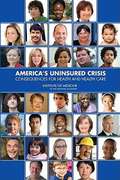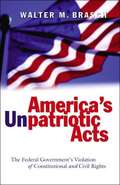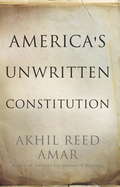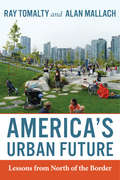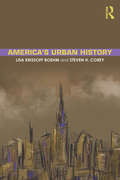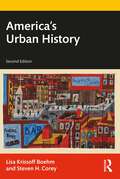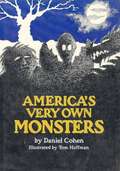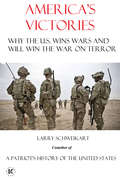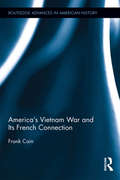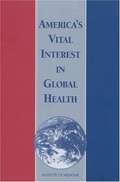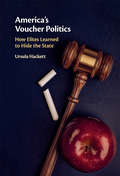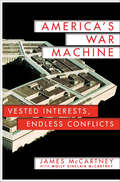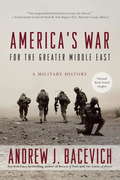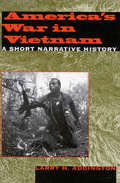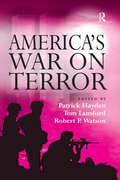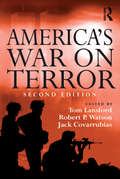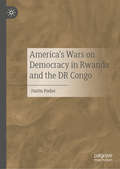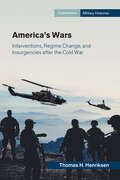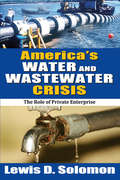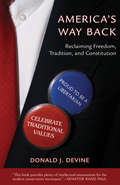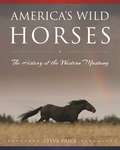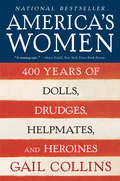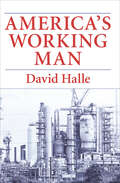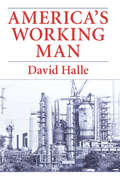- Table View
- List View
America's Uninsured Crisis: Consequences for Health and Health Care
by Institute of Medicien of the National AcademiesWhen policy makers and researchers consider potential solutions to the crisis of uninsurance in the United States, the question of whether health insurance matters to health is often an issue. This question is far more than an academic concern. It is crucial that U.S. health care policy be informed with current and valid evidence on the consequences of uninsurance for health care and health outcomes, especially for the 45.7 million individuals without health insurance. From 2001 to 2004, the Institute of Medicine (IOM) issued six reports, which concluded that being uninsured was hazardous to people's health and recommended that the nation move quickly to implement a strategy to achieve health insurance coverage for all. The goal of this book is to inform the health reform policy debate--in 2009--with an up-to-date assessment of the research evidence. This report addresses three key questions: What are the dynamics driving downward trends in health insurance coverage? Is being uninsured harmful to the health of children and adults?Are insured people affected by high rates of uninsurance in their communities?
America's Uninsured Crisis: Consequences for Health and Health Care
by Institute of MedicineWhen policy makers and researchers consider potential solutions to the crisis of uninsurance in the United States, the question of whether health insurance matters to health is often an issue. This question is far more than an academic concern. It is crucial that U.S. health care policy be informed with current and valid evidence on the consequences of uninsurance for health care and health outcomes, especially for the 45.7 million individuals without health insurance. From 2001 to 2004, the Institute of Medicine (IOM) issued six reports, which concluded that being uninsured was hazardous to people's health and recommended that the nation move quickly to implement a strategy to achieve health insurance coverage for all. The goal of this book is to inform the health reform policy debate--in 2009--with an up-to-date assessment of the research evidence. This report addresses three key questions: What are the dynamics driving downward trends in health insurance coverage? Is being uninsured harmful to the health of children and adults?Are insured people affected by high rates of uninsurance in their communities?
America's Unpatriot Acts: The Federal Government's Violation of Constitutional and Civil Rights
by Walter M. BraschWithin six weeks of the 9/11 terrorist attacks, Congress approved the USA Patriot Act, drafted in secret by the Department of Justice. Brasch, an award-winning syndicated columnist and university professor, looks at the effects of the Patriot Act on the nation and at the many civil rights violations conducted in the US, and by the US in foreign countries, during the three years after 9/11. Annotation ©2004 Book News, Inc., Portland, OR (booknews.com)
America's Unwritten Constitution: The Precedents and Principles We Live By
by Akhil Reed AmarDespite its venerated place atop American law and politics, our written Constitution does not enumerate all of the rules and rights, principles and procedures that actually govern modern America. The document makes no explicit mention of cherished concepts like the separation of powers and the rule of law. On some issues, the plain meaning of the text misleads. For example, the text seems to say that the vice president presides over his own impeachment trial-but surely this cannot beright. As esteemed legal scholar Akhil Reed Amar explains inAmerica’s Unwritten Constitution, the solution to many constitutional puzzles lies not solely within the written document, but beyond it-in the vast trove of values, precedents, and practices that complement and complete the terse text. In this sequel toAmerica’s Constitution: A Biography, Amar takes readers on a tour of our nation’sunwrittenConstitution, showing how America’s foundational document cannot be understood in textual isolation. Proper constitutional interpretation depends on a variety of factors, such as the precedents set by early presidents and Congresses; common practices of modern American citizens; venerable judicial decisions; and particularly privileged sources of inspiration and guidance, including theFederalistpapers, William Blackstone’sCommentaries on the Laws of England, the Northwest Ordinance of 1787, Lincoln’s Gettysburg Address, and Martin Luther King, Jr. ’s "I Have a Dream” speech. These diverse supplements are indispensible instruments for making sense of the written Constitution. When used correctly, these extra-textual aids support and enrich the written document without supplanting it. An authoritative work by one of America’s preeminent legal scholars,America’s Unwritten Constitutionpresents a bold new vision of the American constitutional system, showing how the complementary relationship between the Constitution’s written and unwritten components is one of America’s greatest and most enduring strengths.
America's Urban Future: Lessons from North of the Border
by Ray Tomalty Alan MallachThe headlines about cities celebrating their resurgence--with empty nesters and Millennials alike investing in our urban areas, moving away from car dependence, and demanding walkable, transit-oriented neighborhoods. But, in reality, these changes are taking place in a scattered and piecemeal fashion. While areas of a handful of cities are booming, most US metros continue to follow old patterns of central city decline and suburban sprawl. As demographic shifts change housing markets and climate change ushers in new ways of looking at settlement patterns, pressure for change in urban policy is growing. More and more policy makers are raising questions about the soundness of policies that squander our investment in urban housing, built environment, and infrastructure while continuing to support expansion of sprawling, auto-dependent development. Changing these policies is the central challenge facing US cities and metro regions, and those who manage them or plan their future. In America's Urban Future, urban experts Tomalty and Mallach examine US policy in the light of the Canadian experience, and use that experience as a starting point to generate specific policy recommendations. Their recommendations are designed to help the US further its urban revival, build more walkable, energy-efficient communities, and in particular, help land use adapt better to the needs of the aging population. Tomalty and Mallach show how Canada, a country similar to the US in many respects, has fostered healthier urban centers and more energy- and resource-efficient suburban growth. They call for a rethinking of US public policies across those areas and look closely at what may be achievable at federal, state, and local levels in light of both the constraints and opportunities inherent in today's political systems and economic realities.
America's Urban History
by Lisa Krissoff Boehm Steven Hunt CoreyThe history of the American city is, in many ways, the history of the United States. Although rural traditions have also left their impact on the country, cities and urban living have been vital components of America for centuries, and an understanding of the urban experience is essential to comprehending America’s past. America’s Urban History is an engaging and accessible overview of the life of American cities, from Native American settlements before the arrival of Europeans to the present-day landscape of suburban sprawl, urban renewal, and a heavily urbanized population. The book provides readers with a rich chronological and thematic narrative, covering themes including: The role of cities in the European settlement of North America Cities and westward expansion Social reform in the industrialized cities The impact of the New Deal The growth of the suburbs The relationships between urban forms and social issues of race, class, and gender Covering the evolving story of the American city with depth and insight, America's Urban History will be the first stop for all those seeking to explore the American urban experience.
America's Urban History
by Steven H. Corey Lisa Krissoff BoehmIn this second edition, America’s Urban History now includes contemporary analysis of race, immigration, and cities under the Trump administration and has been fully updated with new scholarship on early urbanization, mass incarceration and cities, the Great Society, the diversification of the suburbs, and environmental justice. The United States is one of the most heavily urbanized places in the world, and its urban history is essential to understanding the fundamental narrative of American history. This book is an accessible overview of the history of American cities, including Indigenous settlements, colonial America, the American West, the postwar metropolis, and the present-day landscape of suburban sprawl and an urbanized population. It examines the ways in which urbanization is connected to divisions of society along the lines of race, class, and gender, but it also studies how cities have been sources of opportunity, hope, and success for individuals and the nation. Images, maps, tables, and a guide to further reading provide engaging accompaniment to illustrate key concepts and themes. Spanning centuries of America’s urban past, this book’s depth and insight make it an ideal text for students and scholars in urban studies and American history.
America's Very Own Monsters
by Daniel CohenDiscusses such creatures as Bigfoot, the Demon Cat, and Mothman which, though never proven, are said to exist in the United States.
America's Victories: Why America Wins Wars and Why They Will Win the War on Terror
by Larry SchweikartIn America's Victories, Professor Larry Schweikart restores the truth about our amazing military heritage. Just as he did in his acclaimed previous book, A Patriot's History of the United States, Professor Schweikart cuts through the distortions passed along by academia and the media
America's Vietnam War and Its French Connection (Routledge Advances in American History #5)
by Frank CainThat America was drawn into the Vietnam War by the French has been recognized, but rarely explored. This book analyzes the years from 1945 with the French military reconquest of Vietnam until 1963 with the execution of the French-endorsed dictator, Ngo Dinh Diem, demonstrating how the US should not have followed the French into Vietnam. It shows how the Korean War triggered the flow of American military hardware and finances to underpin France’s war against the Marxist-oriented Vietnam Republic led by Ho Chi Minh.
America's Vital Interest In Global Health: Protecting Our People, Enhancing Our Economy, and Advancing Our International Interests
by Board on International HealthInformation on America's Vital Interest In Global Health
America's Voucher Politics: How Elites Learned to Hide the State
by Ursula HackettWhat explains the explosive growth of school vouchers in the last two decades? In America's Voucher Politics, Ursula Hackett shows that the voucher movement is rooted in America's foundational struggles over religion, race, and the role of government versus the private sector. Drawing upon original datasets, archival materials, and more than one hundred interviews, Hackett shows that policymakers and political advocates use strategic policy design and rhetoric to hide the role of the state when their policy goals become legally controversial. For over sixty years of voucher litigation, white supremacists, accommodationists, and individualists have deployed this strategy of attenuated governance in court. By learning from previous mistakes and anticipating downstream effects, policymakers can avoid painful defeats, gain a secure legal footing, and entrench their policy commitments despite the surging power of rivals. An ideal case study, education policy reflects multiple axes of conflict in American politics and demonstrates how policy learning unfolds over time.
America's War Machine: Vested Interests, Endless Conflicts
by James McCartney Molly Sinclair McCartneyA veteran Washington reporter reveals how years of military-slanted domestic and foreign policy have turned the U.S. into a perpetual war machine.When President Dwight D. Eisenhower prepared to leave the White House in 1961, he did so with an ominous message for the American people about the "disastrous rise" of the military-industrial complex. Fifty years later, the complex has morphed into a virtually unstoppable war machine, one that dictates U.S. economic and foreign policy in a direct and substantial way.Based on his experiences as an award-winning Washington-based reporter covering national security, James McCartney presents a compelling history, from the Cold War to present day that shows that the problem is far worse and far more wide-reaching than anything Eisenhower could have imagined. Big Military has become "too big to fail" and has grown to envelope the nation's political, cultural and intellectual institutions. These centers of power and influence, including the now-complicit White House and Congress, have a vested interest in preparing and waging unnecessary wars. The authors persuasively argue that not one foreign intervention in the past 50 years has made us or the world safer.With additions by Molly Sinclair McCartney, a fellow journalist with 30 years of experience, America's War Machine provides the context for today's national security state and explains what can be done about it.
America's War for the Greater Middle East: A Military History
by Andrew J. BacevichRetired army colonel and New York Times bestselling author Andrew J. Bacevich provides a searing reassessment of U.S. military policy in the Middle East over the past four decades. From the end of World War II until 1980, virtually no American soldiers were killed in action while serving in the Greater Middle East. Since 1990, virtually no American soldiers have been killed in action anywhere else. What caused this shift? Andrew J. Bacevich, one of the country's most respected voices on foreign affairs, offers an incisive critical history of this ongoing military enterprise--now more than thirty years old and with no end in sight. During the 1980s, Bacevich argues, a great transition occurred. As the Cold War wound down, the United States initiated a new conflict--a War for the Greater Middle East--that continues to the present day. The long twilight struggle with the Soviet Union had involved only occasional and sporadic fighting. But as this new war unfolded, hostilities became persistent. From the Balkans and East Africa to the Persian Gulf and Central Asia, U.S. forces embarked upon a seemingly endless series of campaigns across the Islamic world. Few achieved anything remotely like conclusive success. Instead, actions undertaken with expectations of promoting peace and stability produced just the opposite. As a consequence, phrases like "permanent war" and "open-ended war" have become part of everyday discourse. Connecting the dots in a way no other historian has done before, Bacevich weaves a compelling narrative out of episodes as varied as the Beirut bombing of 1983, the Mogadishu firefight of 1993, the invasion of Iraq in 2003, and the rise of ISIS in the present decade. Understanding what America's costly military exertions have wrought requires seeing these seemingly discrete events as parts of a single war. It also requires identifying the errors of judgment made by political leaders in both parties and by senior military officers who share responsibility for what has become a monumental march to folly. This Bacevich unflinchingly does. A twenty-year army veteran who served in Vietnam, Andrew J. Bacevich brings the full weight of his expertise to this vitally important subject. America's War for the Greater Middle East is a bracing after-action report from the front lines of history. It will fundamentally change the way we view America's engagement in the world's most volatile region. Praise for America's War for the Greater Middle East"Bacevich is thought-provoking, profane and fearless. . . . [His] call for Americans to rethink their nation's militarized approach to the Middle East is incisive, urgent and essential."--The New York Times Book Review "Bacevich's magnum opus . . . a deft and rhythmic polemic aimed at America's failures in the Middle East from the end of Jimmy Carter's presidency to the present."--Robert D. Kaplan, The Wall Street Journal "[A] monumental new work . . . One of the grim and eerie wonders of his book is the way in which just about every wrongheaded thing Washington did in that region in the fourteen-plus years since 9/11 had its surprising precursor in the two decades of American war there before the World Trade Center towers came down."--The Huffington Post "An unparalleled historical tour de force certain to affect the formation of future U.S. foreign policy."--Lieutenant General Paul K. Van Riper, U.S. Marine Corps (Ret.)From the Hardcover edition.
America's War in Vietnam: A Short Narrative History
by Larry H. Addington&“If you want to read one book about Vietnam, read this one.&” —New York Review of Books Drawing on years of experience teaching about the war, Larry H. Addington presents a short, narrative history of the origins, course, and outcome of America&’s military involvement in Vietnam. Not intended as a competitor to the many excellent comprehensive studies of the Vietnam Era, this book will prove a useful introduction and a concise reference to America&’s longest, most controversial war. Addington reviews the history of pre-colonial Vietnam, the impact of French imperialism and the Indochina War, and the Cold War origins of American involvement. He then details US policy after the 1954 Geneva Accords, its role in the establishment of South Vietnam, and the outbreak of a new war. Turning to America&’s deepening involvement, Addington examines the US strategies for waging air and ground war, the impact of the war at home, and the reasons for the failure of US policy under President Johnson. He studies the successes and failures of the policy of withdrawal under President Nixon and concludes with an overview of the war&’s aftermath and its legacy.
America's War on Terror
by Tom Lansford Patrick HaydenThis title was first published in 2003. 9/11 has become more than a date. It has become a noun, an idea shaped and moulded by the media and the American political establishment and the rationale for the subsequent "War on Terror". But what are the real factors that have motivated the world's sole remaining superpower to engage in a permanent war declared on an often elusive and abstract enemy and risk the very relationships that have augmented that global status? While the tragic events of the 11th of September 2001 caused a sea-change in the perception and realities of American security interests and its ability to project a foreign policy agenda, simplistic views that the resulting "War on Terror" is merely "reactionary warfaring" no longer carry any credibility. To fully understand the direction of contemporary US foreign policy requires a detailed understanding of the complex political, historical and personal processes which influence America's new sense of itself and its view of the world.
America's War on Terror: Second Edition
by Robert P. WatsonDeveloping ideas established in the successful first edition, this new version of America's War on Terror updates and expands the original collection of essays, allowing the reader to fully understand how the causes of the war on terror, both the domestic and foreign policy implications, and the future challenges faced by the United States have moved on since 2003. Features include: "
America's Wars on Democracy in Rwanda and the DR Congo
by Justin PodurThis book examines US interventions in the Democratic Republic of the Congo and Rwanda -- two countries whose post-independence histories are inseparable. It analyzes the US campaigns to prevent Patrice Lumumba from turning the DR Congo into a sovereign, democratic, prosperous republic on a continent where America’s ally apartheid South Africa was hegemonic; America’s installation of and support for Mobutu to keep the region under neo-colonial control; and America’s pre-emption of the Africa-wide movement for multiparty democracy in Rwanda and Zaire in the 1990s by supporting Paul Kagame’s Rwandan Patriotic Front (RPF). In addition, the book discusses the concepts of African development, democracy, genocide, foreign policy, and international politics.
America's Wars: Interventions, Regime Change, and Insurgencies after the Cold War (Cambridge Military Histories)
by Thomas H. HenriksenThe collapse of the Soviet Union ushered in American global hegemony in world affairs. In the post-Cold War period, both Democrat and Republican governments intervened, fought insurgencies, and changed regimes. In America's Wars, Thomas Henriksen explores how America tried to remake the world by militarily invading a host of nations beset with civil wars, ethnic cleansing, brutal dictators, and devastating humanitarian conditions. The immediate post-Cold War years saw the United States carrying out interventions in the name of Western-style democracy, humanitarianism, and liberal internationalism in Panama, Somalia, Haiti, Bosnia and Kosovo. Later, the 9/11 terrorist attacks led America into larger-scale military incursions to defend itself from further assaults by al Qaeda in Afghanistan and from perceived nuclear arms in Iraq, while fighting small-footprint conflicts in Africa, Asia, and Arabia. This era is coming to an end with the resurgence of great power rivalry and rising threats from China and Russia.
America's Water and Wastewater Crisis: The Role of Private Enterprise
by Lewis D. SolomonThis book examines the role of private firms in the American water and wastewater industry. As more water infrastructure shifts from public- to private-sector control, vendors, consultants, and facilities are taking on more importance. Lewis D. Solomon presents an historical overview of water supply and treatment needs and the role of the government, including how water policy has been crafted. He argues that water scarcity is becoming a problem due to groundwater depletion, contamination, and patterns of consumption. He examines the impact of climate change on water availability and quality considering voluntary conservation programs and mandatory restrictions for water use.Solomon points to how for-profit firms can use technology to increase water supply. He describes what privatization would look like in practice and reviews evidence from two case studies. Solomon proposes privatization as a viable response to America's water crisis that can address both scarcity and capital problems.America's Water and Wastewater Crisis presents a careful examination of how the water industry has operated in the United States in the past and how it may work as we move into the future. This book is invaluable to environmental specialists, businessmen, and government officials.
America's Way Back: Reclaiming Freedom, Tradition, and Constitution
by Donald Devine&“The solution for the modern GOP . . . Intellectual ammunition for the modern conservative movement.&” —SENATOR RAND PAULHow can America recover from economic stagnation, moral exhaustion, and looming bankruptcy? Donald J. Devine shows the way.Devine, a longtime adviser to Ronald Reagan, lays out a powerful case for the philosophical synthesis of freedom and tradition that Reagan said was the essence of modern conservatism. The secret of America&’s success, he shows, has been the Constitution&’s capacity to harmonize the twin ideals of freedom and tradition. But today, progressivism has so corrupted modern political thinking—in both parties—that leaders keep calling for the same failed tactics: more money poured into more big-government programs.In America&’s Way Back, Devine not only reveals where things went wrong, and why, but also points the way to reclaiming America&’s freedom, prosperity, and creativity. The solution lies in a new &“fusion&” of traditional and libertarian thought.
America's Wild Horses: The History of the Western Mustang
by Steve PriceThere is no creature that quite embodies the beauty and grandeur of the American West as does the wild horse. For thousands of years, the horse has roamed the plains and valleys of the American continent, free of the encumbrances of man or the saddle. In America’s Wild Horses, award-winning photographer and lifelong horse lover Steven Price celebrates the timeless magnificence of the American mustang.Meticulously researched, Price offers a cultural history of the American wild horse that is unparalleled in its exquisite detail and poignant prose. Beginning with chapters on prehistoric equines, Price sweeps through all the most important historical epochs in the history of the American mustang. Detailed accounts of horse-breeding in the Southwest, Native American horsemanship, and mustangs in the golden age of the iconic American cowboys each detail the profound impact that the wild horse has had in shaping American culture. Later chapters chronicle the legacy of the horse in the twentieth and twenty-first centuries, specifically emphasizing the legal and scientific measures that are being taken by horse-lovers across the country to ensure that later generations will also be able to witness the majesty of the wild horse.Featuring dozens of stunning photographs by the author, and interspersed with firsthand interviews with some of the most renowned horse experts today, America’s Wild Horses is a required read for all equine lovers.
America's Women
by Gail CollinsAmerica's Women tells the story of more than four centuries of history. It features a stunning array of personalities, from the women peering worriedly over the side of the Mayflower to feminists having a grand old time protesting beauty pageants and bridal fairs. Courageous, silly, funny, and heartbreaking, these women shaped the nation and our vision of what it means to be female in America. <P><P>By culling the most fascinating characters -- the average as well as the celebrated -- Gail Collins, the editorial page editor at the New York Times, charts a journey that shows how women lived, what they cared about, and how they felt about marriage, sex, and work. She begins with the lost colony of Roanoke and the early southern "tobacco brides" who came looking for a husband and sometimes -- thanks to the stupendously high mortality rate -- wound up marrying their way through three or four. Spanning wars, the pioneering days, the fight for suffrage, the Depression, the era of Rosie the Riveter, the civil rights movement, and the feminist rebellion of the 1970s, America's Women describes the way women's lives were altered by dress fashions, medical advances, rules of hygiene, social theories about sex and courtship, and the ever-changing attitudes toward education, work, and politics. While keeping her eye on the big picture, Collins still notes that corsets and uncomfortable shoes mattered a lot, too. <P><P>"The history of American women is about the fight for freedom," Collins writes in her introduction, "but it's less a war against oppressive men than a struggle to straighten out the perpetually mixed message about women's roles that was accepted by almost everybody of both genders." <P><P>Told chronologically through the compelling stories of individual lives that, linked together, provide a complete picture of the American woman's experience, America's Women is both a great read and a landmark work of history.
America's Working Man: Work, Home, and Politics Among Blue Collar Property Owners
by David Halle&“An unusually deep and wide-ranging study&” by a sociologist who spent years listening to and living among workers at a New Jersey chemical plant (Journal of American Studies). Over a period of six years during the late 1970s, at factory and warehouse, at the tavern across the road, in their homes and union meetings, on fishing trips and social outings, David Halle talked and listened to workers of an automated chemical plant in New Jersey&’s industrial heartland—white, male, and mostly Catholic. He has emerged with an unusually comprehensive and convincingly realistic picture of blue-collar life in America during this era. Throughout the book, Halle illustrates his analysis with excerpts of workers&’ views on everything from strikes, class consciousness, politics, job security, and toxic chemicals to marriage, betting on horses, God, home-ownership, drinking, adultery, the Super Bowl, and life after death. Halle challenges the stereotypes of the blue-collar mentality and provides a detailed, in-depth portrait of one community of workers at a time when it was relatively affluent and secure. &“Absorbing reading.&”—Business Week
America's Working Man: Work, Home, and Politics among Blue-Collar Property Owners
by David HalleOver a period of six years, at factory and warehouse, at the tavern across the road, in their homes and union meetings, on fishing trips and social outings, David Halle talked and listened to workers of an automated chemical plant in New Jersey's industrial heartland. He has emerged with an unusually comprehensive and convincingly realistic picture of blue-collar life in America. Throughout the book, Halle illustrates his analysis with excerpts of workers' views on everything from strikes, class consciousness, politics, job security, and toxic chemicals to marriage, betting on horses, God, home-ownership, drinking, adultery, the Super Bowl, and life after death. Halle challenges the stereotypes of the blue-collar mentality and argues that to understand American class consciousness we must shift our focus from the "working class" to be the "working man. "

